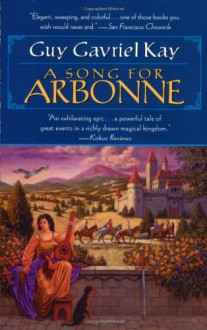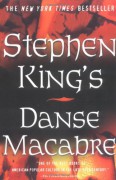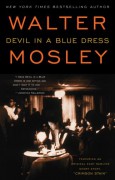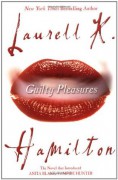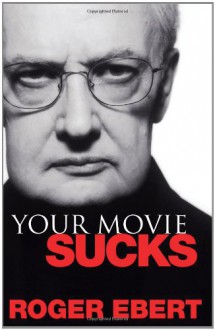In case you haven't noticed, I'm a bit of a geek. Like many geeks, I love lists; reading them, making them, debating them or flat disagreeing with them, I love it all. As such, I have quite a few books that are, basically, "best of" lists. I love these because they point me at good stuff I haven't experienced yet.
It struck me that there are many different ways to compile such a book, each with it's own benefits and drawbacks. So, here are a few different ways of doing it, with examples.
1. Utterly Subjective, Single Author
Example:  The Great Movies - Roger Ebert,Mary Corliss
The Great Movies - Roger Ebert,Mary Corliss
This style is probably the simplest: You list your favorite examples of a thing and explain why. This is the style I employ on this blog, and the style Ebert employed in his Great Movies series.
Benefits: Ease of writing, pleasantness of experience, enthusiasm, easy to organize.
Drawbacks: No data to fall back on, personal exposure, not authoritative.
You don't have to watch, read, or listen to anything you don't want to, but people can attack you for your opinions (risky in the internet era). Still, it's a lot of fun to just gush about the stuff you love.
2. Attempted Objective, Single Author
Example:  Science Fiction: The 100 Best Novels: an English-language selection, 1949-1984 - David Pringle
Science Fiction: The 100 Best Novels: an English-language selection, 1949-1984 - David Pringle
Here, the author makes their best stab at an "official" list, compiling examples because of importance, influence, quality, or other criteria based on their own judgement.
Benefits: More comprehensive and authoritative, helpful creative/critical exercise.
Drawbacks: "Why this one and not...", exposure to works that one finds unpleasant, "important" works that don't hold up.
This kind of list is great for the author in two ways: They have to step outside of themselves, and it's a chance to dig into classics they haven't gotten around to (and any purchases are tax-deductible, because it's "research"). Still, they have to slog through some works they don't like, and will still be open to accusations of bias. Hell, they will be biased, no matter how hard they try to avoid it. This will also affect the passion in the writing. And they still don't have concrete data backing them up.
3. Subjective Take on Objective Data, Single Author
Example: 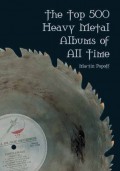 The Top 500 Heavy Metal Albums of All Time - Martin Popoff
The Top 500 Heavy Metal Albums of All Time - Martin Popoff
Gather data from various polls, interviews or other outside sources, compile a ranking, and then express your opinion of the various works, their placement, etc.
Benefits: Opportunities for snark, exposure to new works, not having to dredge your own brain.
Drawbacks: Frustration, works you may find awful/offensive, disappointment when some of your favorites are low on the list or absent altogether.
This one is just too much work for me, although it would be interesting to, say, watch and review every Best Picture winner, in order. Watching Crash again would be a chore, though.
4. Utterly subjective, Multi-Author
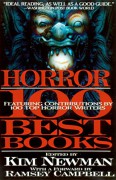 Horror: The 100 Best Books - Stephen Jones,Kim Newman
Horror: The 100 Best Books - Stephen Jones,Kim Newman
Get a bunch of people to talk about their favorite works. What could possibly go wrong?
Benefits: Less writing, lots of discoveries, high enthusiasm.
Drawbacks: Logistical nightmare, missed deadlines, explaining the concept repeatedly.
Now I just need to find 100 people in the field who have enough time to write a piece, make sure there are no double-ups (two people picking the same subject), editing each piece, communicate with various agents/publishers, etc. If you prefer organizing to writing, not a bad choice, but keeping your ducks in a row can be a bear. Plus, there will be classics/"essentials" that no one picks, but you can blame your contributors for that.
5. Attempted Objective, Multi-Author
 Fantasy: The 100 Best Books - James Cawthorn,Michael Moorcock,James Cawthorne
Fantasy: The 100 Best Books - James Cawthorn,Michael Moorcock,James Cawthorne
You and a cohort come up with a list of classics, then divide and conquer.
Benefits: Lessened workload, interesting conversations, a united front.
Drawbacks: Arguments, resentment.
Doing an SF list but hate Heinlein? You can have your friend write that piece while you review that Ellison collection. Great, but what happens if one of you has a personal crisis? The other has to step up, leading to a potentially unbalanced workload. And the hashing out of the actual list can be both fun and frustrating, while dealing with each other's criticism of your writing styles just might suck. Just kidding, it'll be fine!
6. Subjective Takes on Objective Data, Multi-Author
Example: 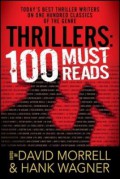 Thrillers: 100 Must-Reads - David Morrell,Hank Wagner
Thrillers: 100 Must-Reads - David Morrell,Hank Wagner
Gather the pertinent data to compile a list, then get other people in the field to discuss their favorites from said list.
Benefits: Enthusiasm, less writing, hard data.
Drawbacks: Logistical issues, unpicked subjects.
Here, you have the same issues as #4, except you're backed up by data. But what if nobody really wants to write about something on the list? That falls to you, and can lead to some entries having all the verve of a high school book report.
Anyway, thanks for reading this list about books of lists.

 Log in with Facebook
Log in with Facebook 






